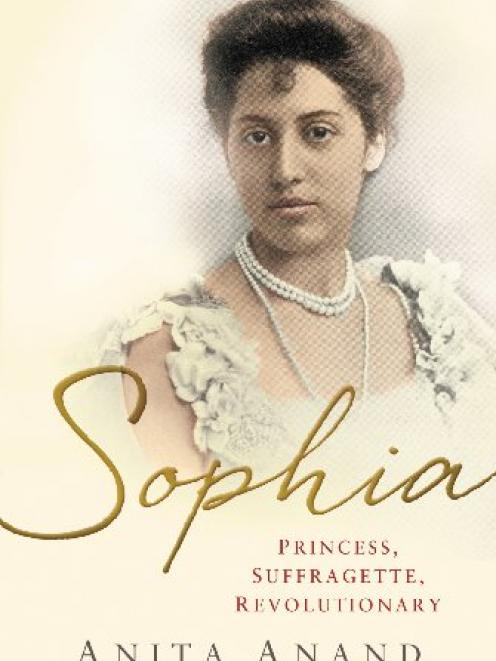
Anita Anand is an English radio and television journalist. This is her first book.
Sophia was an Indian princess whose grandfather was the last great Maharajah of the Punjab who possessed ''lands and riches greater than any Punjabi before or since''.
After his death, the British capitalised on the ensuing violent unrest and separated his young heir from a strong-willed mother, telling him only British guardians could save his life and ''so it was that with no one to counsel him, the Maharajah, aged eleven, signed away his kingdom, his fortune and his family's fortune''.
Brought up as an English gentleman by his assigned family, while still a youth Sophia's father travelled to England and became a great favourite of Queen Victoria.
The connection with the English Royal Family remained strong. Sophia was the Queen's goddaughter, was [with her two sisters] presented at court as a debutante, and was later granted a lifelong residence at Hampton Court.
This royal connection did not stop Sophia from being passionately involved in the suffragette movement, although it did mean that, no matter how hard she tried, she was never thrown into jail like her less well connected fellow protesters.
In spite of her famous godmother, she was strongly involved with the revolutionary movement in India. Travel to her family's home country was banned for years, and when she eventually visited, she became increasingly incensed at the arrogance of the British Rule she witnessed.
Through her meetings with Nationalists Gopal Krishna Gokhale and Lala Laipai Rai, she become an ardent anti-colonialist.
It is a lengthy, extensively researched book. Princess Sophia's story frequently gets lost under a mountain of information, as Anand goes into lengthy detail while backgrounding each stage of her life.
Luckily, she occasionally drops tidbits of eccentricity to spice up a rather plodding pace: Freddie, Sophia's brother, for example, was such a fervent royalist ''he even procured a valuable portrait of Oliver Cromwell just so that he could hang it upside down in the toilet of his Suffolk home''.
Although the principal character's personality rarely emerges from this overload of information, Sophia's story provides a huge amount of fascinating historical detail on each movement she is involved with, from the beginnings of the Sikh religion, to the extraordinary battles of the early suffragettes, to the heroism of Gandhi.
Well worth reading for its insights into the emergence of Indian independence and the reminder of what women had to battle to achieve their voting rights.
- Patricia Thwaites is a retired Dunedin schoolteacher.











